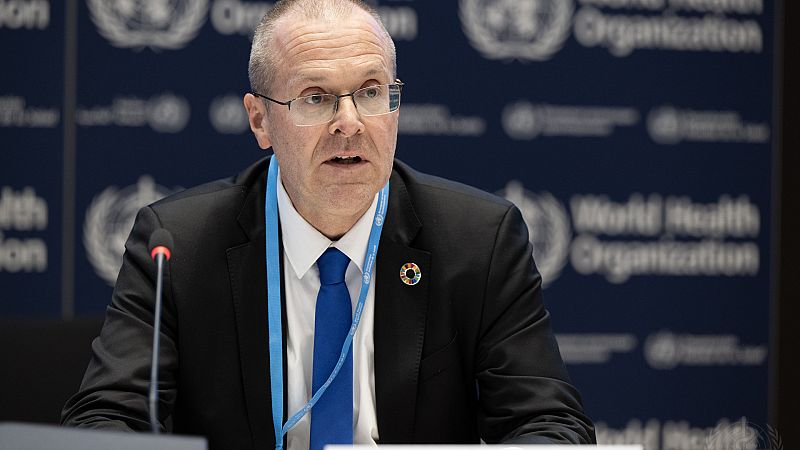WHO in ‘stop the bleeding phase’ due to US withdrawal, Europe head says

WHO Europe’s director, Hans Kluge, warned on Wednesday of the risk of instrumentalising health for political objectives and explained that the organisation is now assessing its needs following the US withdrawal.
Following President Donald Trump’s decision to leave the WHO, the agency will not only lose the substantial financial contribution from the US but will also face gaps in access to critical information and healthcare personnel on the ground.
The WHO can adapt to the loss of American government support, Director-General Dr Tedros Adhanom Ghebreyesus stated in a December press conference, but he cautioned that the impact would be significant.
“The EU now more than ever has to stand strong on those values of humanity,” said the regional WHO chief, emphasising the need for health diplomacy.
“I think we should never instrumentalise health for political objectives,” added Kluge, acknowledging Trump’s “different opinion on multilateralism”.
A month after the US announcement, Kluge explained to EU lawmakers in Brussels that the organisation is currently in a “stop the bleeding” phase – the first of three.
“Meaning very, very brutal cost efficiency measures. Going a little bit like the COVID-19 mode,” he added, explaining that during the pandemic, actions previously considered impossible were made feasible due to extraordinary circumstances.
After stopping the immediate financial shortfall, he said, the next step will be to seek alternative sources of funding.
Since Trump’s announcement, there has been speculation about who might step in to fill the funding gap, with China, the EU, and private organisations—which are already major donors to the WHO—among the main contenders.
Point number three, according to Kluge, would involve rethinking how the organisation operates, which includes identifying redundancies, exploring synergies and options to lower costs.
“The WHO is doing too much; that is a fact. We are not a large NGO. We must return to the basics,” he said, adding that the agency should focus on delivering high-quality guidance, technical expertise, and scientific excellence while engaging in operational work only when necessary.
Following the US decision, other countries have also expressed scepticism towards the WHO, with Argentina now threatening to withdraw as well.
Earlier this month, President Javier Milei instructed the country’s foreign minister to initiate the withdrawal process, a government spokesperson stated during a press conference. The Associated Press reported that the decision was due to concerns over the WHO’s “lack of independence from political influence” during the COVID-19 pandemic.

